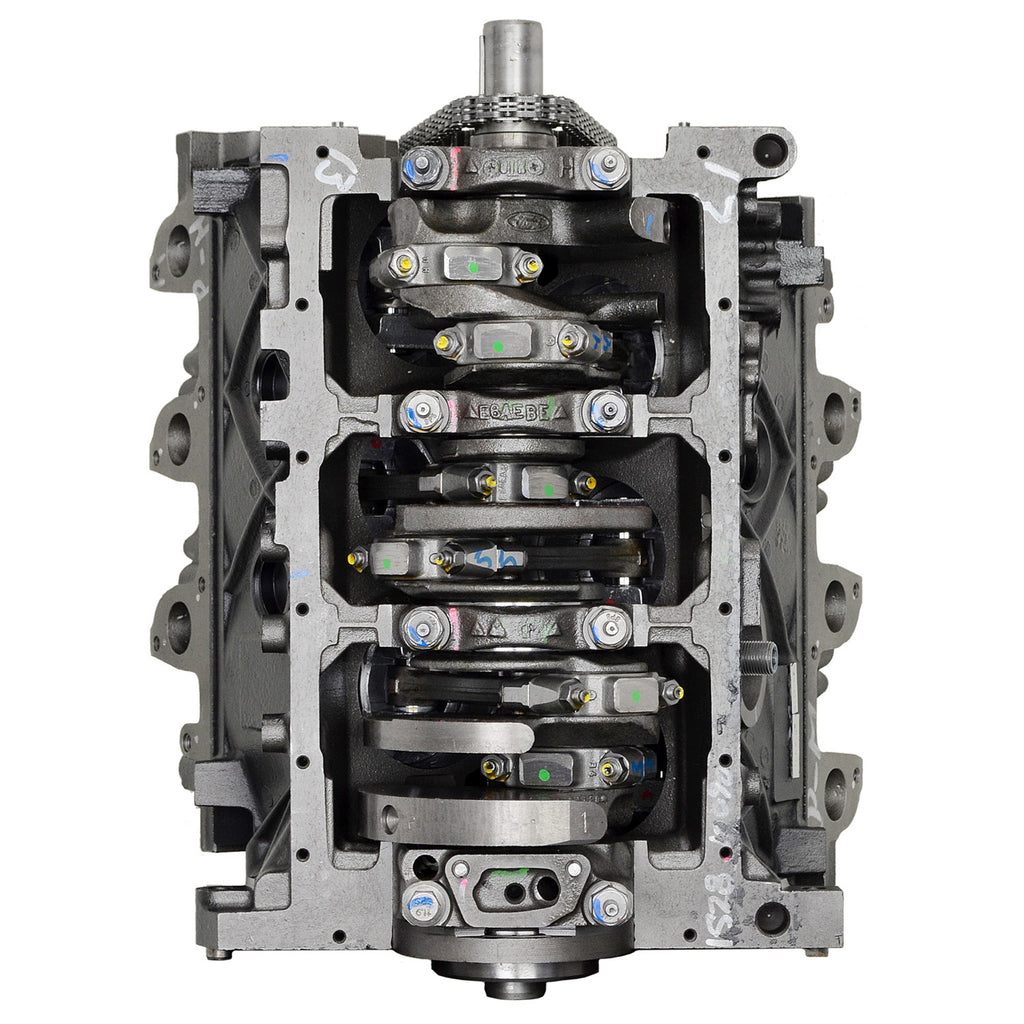Explore the Key Features of the 2.2 Ford Ranger Engine and Its Fuel Efficiency
Explore the Key Features of the 2.2 Ford Ranger Engine and Its Fuel Efficiency
Blog Article
What Makes a Car Engine Run Smoothly: Leading Tips for Optimum Care
The smooth operation of a cars and truck engine is basic to both performance and long life, making ideal treatment a crucial responsibility for automobile owners. Key methods, such as normal oil changes, preserving coolant degrees, and keeping track of air filters, are crucial yet commonly overlooked. The relevance of evaluating spark plugs and making certain proper tire pressure can not be understated. Comprehending exactly how these components adjoin can improve not just the efficiency of your car however additionally your overall driving experience. What certain actions should you focus on to ensure your engine stays in peak problem?
Normal Oil Modifications
One of the most essential aspects of car upkeep is ensuring your engine receives normal oil modifications. Engine oil lubricates internal parts, minimizes friction, and aids preserve optimal operating temperature levels. With time, oil breaks down due to warmth, pollutants, and the natural results of combustion, leading to lowered effectiveness and potential engine damages.
A lot of manufacturers advise changing the oil every 5,000 to 7,500 miles, yet this interval can differ based on driving conditions and oil kind. Artificial oils may enable for longer intervals in between modifications. Regular oil modifications not only boost engine performance yet also enhance gas effectiveness, as clean oil advertises smoother operation.
Neglecting oil modifications can result in sludge build-up, which hinders blood circulation and can cause severe engine concerns. It is vital to inspect oil degrees routinely and check for any uncommon modifications in shade or consistency, which could suggest contamination or destruction.
Keeping Coolant Levels
Preserving correct coolant levels is vital for protecting against engine overheating and guaranteeing ideal efficiency. The coolant, normally a mixture of water and antifreeze, circulates through the engine, taking in warm and avoiding thermal anxiety. Inadequate coolant can cause boosted engine temperature levels, which might trigger serious damage and even total engine failure.
To keep optimum coolant levels, routinely examine the coolant reservoir, typically located in the engine bay. Ensure the coolant is filled to the recommended mark, as indicated in your vehicle's proprietor guidebook. It is suggested to examine the degrees at least once a month or before long journeys, specifically throughout severe weather.
If you notice that the coolant degree is constantly low, there may be a leak in the cooling system, which ought to be attended to immediately to avoid further problems. 2.2 ford ranger engine. Furthermore, flushing the coolant system every 2 to 3 years can help get rid of any type of built up debris and make certain effective heat exchange
Monitoring Air Filters
It is recommended to examine the air filter every 12,000 to 15,000 miles, or much more regularly if driving in check this site out dusty or page damaging conditions. A basic aesthetic evaluation can usually reveal whether the filter is filthy or harmed. It must be changed promptly. if the filter appears tarnished or has noticeable dirt accumulation.
Making use of a top quality air filter created for your details car version can further improve engine efficiency. In addition, some cars might take advantage of recyclable filters that can be cleansed and re-installed, offering a cost-efficient and eco-friendly choice.
Inspecting Flicker Plugs
Spark plugs are important components of a car's ignition system, directly impacting engine performance and effectiveness. They produce the spark that fires up the air-fuel blend in the burning chamber, assisting in the engine's power generation. Normal examination of ignition system is critical for keeping optimum engine feature and avoiding prospective issues.
Dark residue or oil deposits can show incorrect burning, while a raw or white appearance might suggest getting too hot. Both conditions call for immediate interest to prevent additional engine damage.
It's a good idea to examine trigger plugs every 30,000 miles, or as recommended in your automobile's owner guidebook. Additionally, think about changing them according to the maker's standards, as old or worn spark plugs can cause misfires, decreased gas efficiency, and raised discharges.
Surveillance Tire Pressure
Under-inflated tires can lead to decreased fuel effectiveness, boosted tire wear, and jeopardized handling. Routine tracking of tire stress is necessary for optimum lorry procedure.
Tire stress must be examined a minimum of as soon as a month and soon journeys. Make use of a reliable tire pressure gauge to measure the stress when the tires are cold, ideally prior to the vehicle has actually been driven for at the very least three hours. Refer to the vehicle's owner manual or the placard situated on the driver's side door jamb for the manufacturer's advised stress degrees.
It is important to note that tire pressure can fluctuate with adjustments in temperature; a drop of visit site 10 ° F can result in a 1-2 psi decrease in pressure. Additionally, visually inspect tires for any signs of wear or damages throughout your tracking routine. Preserving correct tire stress not just improves automobile safety and security yet additionally boosts gas efficiency and extends tire life, eventually adding to a smoother engine performance.
Final Thought
In verdict, preserving an automobile engine's smooth operation calls for diligent interest to several vital elements. Inevitably, a proactive method to engine treatment is important for making sure dependability and functionality over time.
One of the most crucial facets of car upkeep is guaranteeing your engine receives routine oil adjustments. Engine oil lubricates interior parts, reduces friction, and aids preserve ideal operating temperature levels. Normal oil adjustments not just boost engine efficiency but also enhance fuel effectiveness, as clean oil promotes smoother operation.
Inadequate coolant can lead to boosted engine temperature levels, which might create severe damages or also complete engine failing.

Report this page